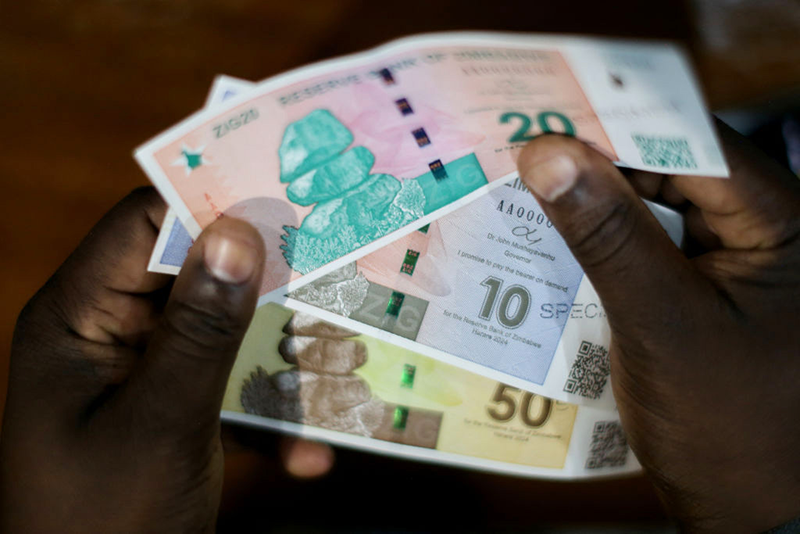- Economy
- No Comment
Illegal moneychangers back on streets after brief disappearance; ZiG rate down to 20 on black market

By Xinhua
HARARE: Zimbabwe’s illegal money changers are back on the streets after a brief hiatus following the introduction of a new gold-backed currency, the Zimbabwe Gold (ZiG).
Although the currency is still only available electronically as the new notes and coins are still under production, the money changers are offering slightly higher rates than the official one, which was $1 to 13.3437 ZiG on Wednesday, according to ZB Financial Holdings.
The black market is, however, offering about 15 ZiG (buy rate) and around 20 ZiG (sell rate) to the US dollar, according to money changers.
A money changer at the Westgate Shopping Mall, northwest of Harare, Zimbabwe’s capital, said he and his colleagues were always on the lookout for the police as they conducted their transactions.
Read: Zimbabwe’s new gold-backed currency starts trading
“Our selling rate is $1 to 20 or 21 ZiG depending on the amount transacted, and our buying rate is between 15 and 16 ZiG to the U.S. dollar, also depending on the amount transacted. Those disposing of higher amounts get more favourable rates,” he said.
There has been much scepticism in the market over the introduction of the country’s sixth currency since independence, with some people suggesting that the move was a clever way for the authorities to remove some zeros from the inflation-battered old Zimbabwean dollar.

The ZiG started trading on April 8 at an exchange rate of 13.56 to the US dollar as the Reserve Bank of Zimbabwe (RBZ) sought to deal with the high demand for foreign currency as a store of value and boost confidence in the local currency following months of currency volatility.
While it has performed well on the official platform, the situation is different in the parallel market, where the rate is going up albeit slowly.
It was introduced as the economy had been moving toward full dollarization, with over 80 percent of market transactions being conducted in the US dollar as it continued to dominate the weaker Zimbabwean dollar, according to the RBZ.
The government has since warned that it will deal with illegal money changers as it seeks to protect the new currency.
Zimbabwean economist Paul Musodza noted that if done with good intentions, the ZiG would succeed in the market despite its slim chances.
“Chances are slim, but if done with the intention of fixing it for the country — not individual interests — then it will succeed. But central bank independence on monetary policy formulation is crucial at this stage,” he told Xinhua.
Another economist, Brains Muchemwa, told Xinhua recently that with the right safeguards and the government taking a leading role in supporting widespread demand for the new currency, stabilising the ZiG exchange rate should not be a big task.
